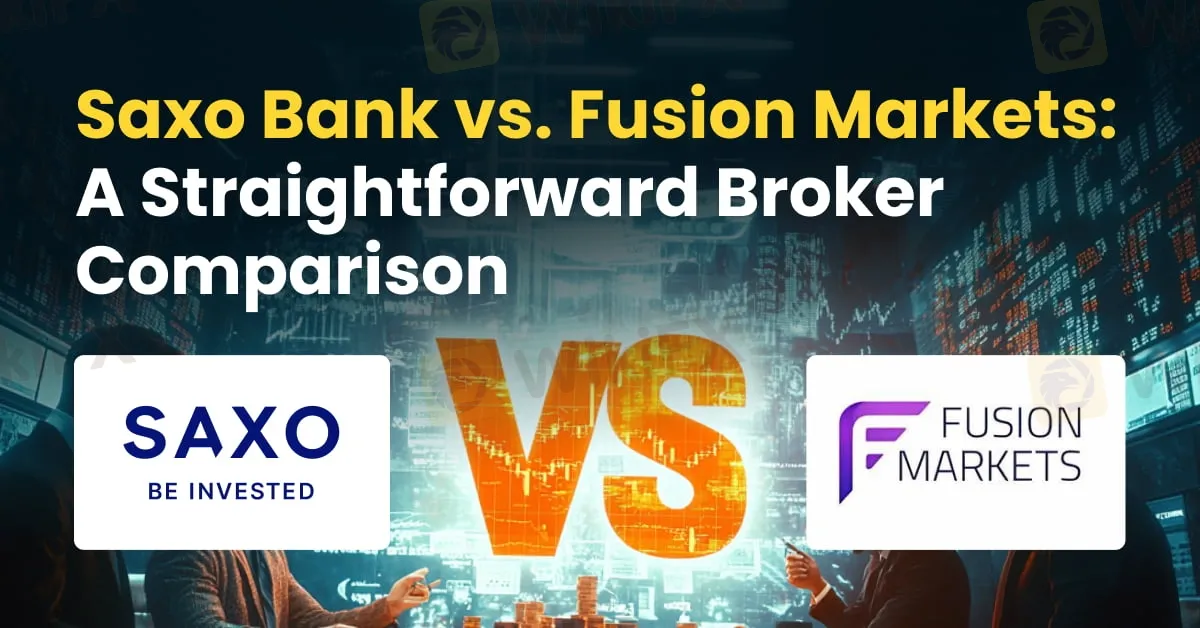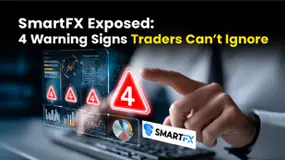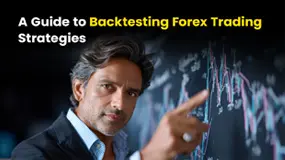简体中文
繁體中文
English
Pусский
日本語
ภาษาไทย
Tiếng Việt
Bahasa Indonesia
Español
हिन्दी
Filippiiniläinen
Français
Deutsch
Português
Türkçe
한국어
العربية
Saxo Bank vs. Fusion Markets: A Straightforward Broker Comparison
Abstract:When it comes to choosing a forex and CFD broker, traders often face a key question: do you go with a trusted, global institution like Saxo Bank, or a low-cost, flexible option like Fusion Markets? Both brokers offer unique advantages, but they’re built for very different types of users.

When it comes to choosing a forex and CFD broker, traders often face a key question: do you go with a trusted, global institution like Saxo Bank, or a low-cost, flexible option like Fusion Markets? Both brokers offer unique advantages, but theyre built for very different types of users.

Saxo Bank is a global investment bank that‘s been around since the early 1990s. It’s heavily regulated in major financial markets, including by the UK‘s Financial Conduct Authority (FCA), Australia’s ASIC, and Japan‘s FSA. It also offers strong client fund protection and participates in Denmark’s investor compensation scheme. This makes it one of the safest choices for traders who prioritize regulation, trust, and long-term stability.
Fusion Markets, on the other hand, is a newer broker focused on keeping costs low for everyday traders. It is regulated by ASIC in Australia but also holds offshore licenses like the Seychelles FSA, which offers weaker protections. This isnt necessarily a red flag for most users, but those who want full regulatory backing might be cautious.

In terms of what you can trade, Saxo Bank offers a huge product range with over 40,000 instruments across stocks, ETFs, bonds, futures, options, forex, and more. It‘s built for professionals and serious investors managing large, diverse portfolios. The broker’s SaxoTraderPRO platform provides powerful tools for experienced users, while SaxoInvestor is a simpler version for beginners who just want to buy and hold.
Fusion Markets takes a more focused approach. It offers forex, a few commodities, indices, and stock CFDs, but no crypto, bonds, or options. What it lacks in variety, it makes up for in platform choice and pricing. Traders can use MT4, MT5, cTrader, or even TradingView, making it perfect for those who want flexibility and the ability to automate strategies.

When it comes to cost, the difference is clear. Saxo Bank is expensive. Institutional and VIP clients may need to deposit $100,000 or more just to access preferred pricing. Spreads can be tight (as low as 0.4 pips), but commissions on other products like stocks and ETFs can add up quickly. In contrast, Fusion Markets is one of the lowest-cost brokers on the market. Theres no minimum deposit, and their Zero account offers raw spreads starting at 0.0 pips with just a $4.50 commission per lot, which is ideal for cost-sensitive traders and those testing out new strategies.
Customer service is another area where Fusion Markets shines. It offers 24/7 support through live chat, phone, and email. It also provides free educational content for beginners. Saxo Banks support is more limited, with service only available on weekdays, and some users report issues with login processes and platform navigation.
So, which broker is right for you? If you're a professional or high-net-worth trader looking for access to global markets under strong regulation, Saxo Bank is a solid choice. Its wide product range, institutional-grade tools, and long-standing reputation make it ideal for building and managing large portfolios.
But if you're a retail trader, just starting out, or focused on low-cost forex strategies, Fusion Markets is likely a better fit. Its simple to use, highly affordable, and offers more freedom when it comes to platform choice and strategy testing, without the pressure of large deposits.
Ultimately, your decision should depend on your goals, budget, and risk comfort. Saxo Bank offers depth and safety, while Fusion Markets offers speed, savings, and flexibility. Both serve different needs, and both do it well.

Disclaimer:
The views in this article only represent the author's personal views, and do not constitute investment advice on this platform. This platform does not guarantee the accuracy, completeness and timeliness of the information in the article, and will not be liable for any loss caused by the use of or reliance on the information in the article.
Read more

SmartFX Exposed: 4 Warning Signs Traders Can’t Ignore
Facing losses due to manipulative forex trading that takes centre stage at SmartFX? Move out of this ship before it sinks and leaves you with virtually no capital on hand. In this article, we will expose SmartFX by showcasing its four red flags that traders like you cannot ignore.

Is India-Based Groww an Investment Scam? 5 Truths to Know
Groww is an India-based broker that is gaining popularity rapidly in the country. You will often see its ads on YouTube and other social media platforms. This broker is promoting itself aggressively. But before you invest with this broker, here are 5 red flags you should know.

A Guide to Backtesting Forex Trading Strategies
As one of the most liquid and widely traded markets globally, the forex market offers traders immense earning opportunities. However, currency trading can present risks too because you may trade leveraged positions, potentially resulting in significant losses should things go wrong. Backtesting forex trading strategies before investing in a strategy is crucial. Should you fail to test it, you may end up risking time and capital on a strategy that doesn’t hold an edge. In this article, we will discuss backtesting a forex trading strategy. Read on!

Datuk Seri Linked to RM8.4 Million Gold Investment Scam Under Police Probe
Malaysian police are investigating a gold investment scam that has cheated 37 people out of more than RM8.4 million, with a businessman holding the honorific title ‘Datuk Seri’ believed to be the mastermind.
WikiFX Broker
Latest News
Datuk Seri Linked to RM8.4 Million Gold Investment Scam Under Police Probe
The Psychology Behind the Ascending Triangle Pattern in Forex
Charles Schwab Forex Review 2025: What Traders Should Know
The Global Inflation Outlook
What WikiFX Found When It Looked Into XS
ASIC Regulated Forex Brokers: A Comprehensive 2025 Guide
Revealing the Art of Forex Spread Betting
EC Markets Enters Mexico City, Accelerates LATAM Push
Scam Warning from NZ FMA: Beware of Unauthorised Firms
Top CMA-Regulated Forex Brokers in Kenya 2025
Currency Calculator


